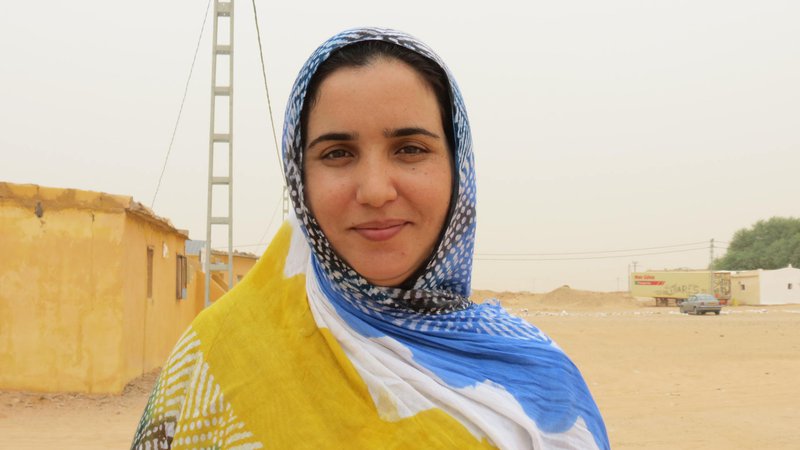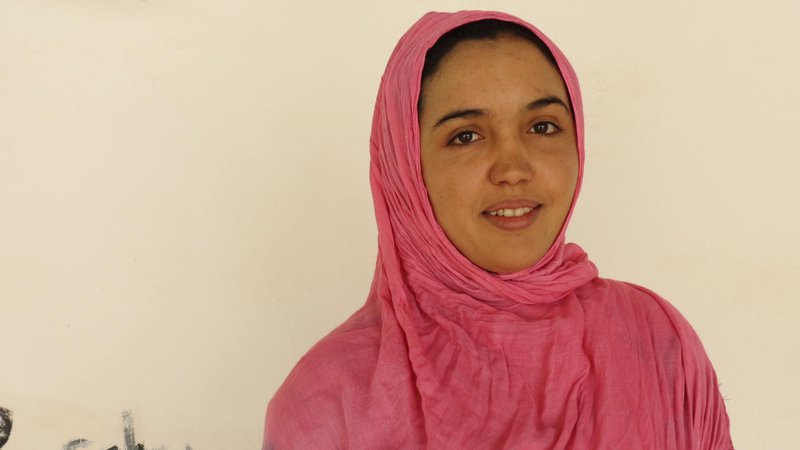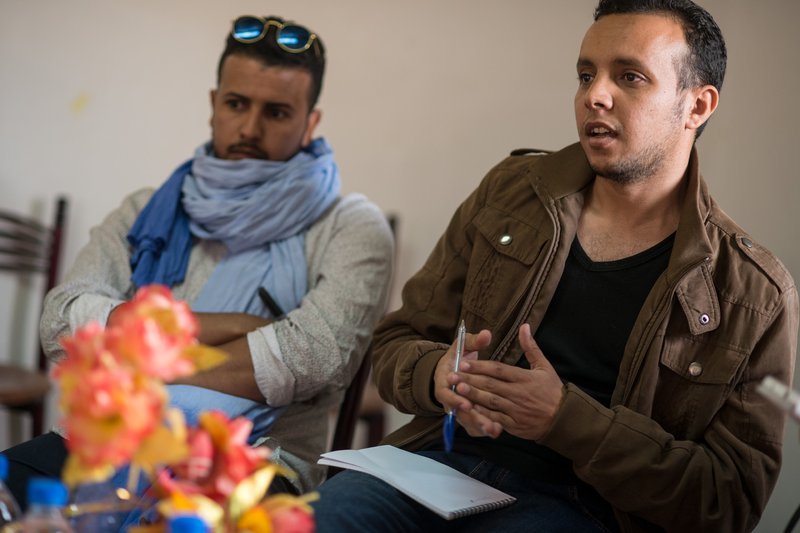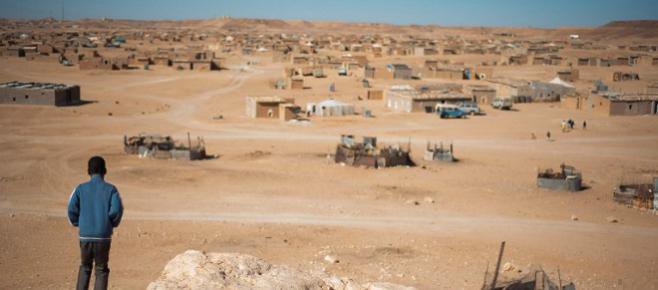Western Sahara is a territory located in North-Western Africa, bordering Morocco, Algeria and Mauritania. The Territory was under Spanish administration until 1963, when the decolonisation process of Western Sahara began. That same year, it was added to the United Nations (UN) list of non-self-governing territories. It was not until 1975 that Western Sahara saw the departure of their coloniser, Spain. But as it left the territory, Madrid ceded control of the territory to Morocco and Mauritania. The claim of these two nations over the sovereignty of the territory triggered an armed conflict with the Polisario Front, the Sahrawi liberation movement. As it escalated, many Sahrawi fled to Algeria, marking the beginning of the refugee crisis, which is still ongoing today. More than 173 000 refugees currently reside in the camps.
The Polisario declared the creation of the Sahrawi Arab Democratic Republic (SADR) on 27 February 1976. After 16 years of war, an agreement was reached between the Polisario Front and Morocco, which was brokered by the United Nations. Mauritania had already withdrawn from the Territory in 1979. On the basis of this agreement, the Security Council set up the United Nations Mission for the Referendum in Western Sahara (MINURSO) in 1991, with the aim of monitoring the ceasefire and organising a referendum.
Since then, the Sahrawi refugees, many of whom are living in Algerian camps for over 40 years, are desperately waiting for “the return journey”. For them, the creation of the MINURSO signified a return home in the near future. But to this day, no referendum has yet taken place. It is paramount to the Maghreb region’s stability that the political process moves forward in order to find a just and lasting solution to the long-lasting Western Sahara conflict.
In April 2018, the Security Council extended the MINURSO mandate, this time for a period of six months instead of one year, suggesting that the process is gaining momentum.
Virginia Mura, Oxfam’s head of influencing for the Western Sahara crisis, is based in the Algerian refugee camps and interviewed five young Sahrawis who shared their experiences and frustrations, ranging from limited access to education to unemployment and grassroots peace-building initiatives. These are their stories.

My name is Salima. I am 29 years old. I live in the Laayoune refugee camp in the Algerian desert, in the middle of nowhere. This place is hostile and harsh; summers witness temperatures rising to 60 degrees Celsius, sandstorms, constant drought and the rare but devastating torrential rains, rendering any form of normal life impossible. We don’t have electricity, so my family and I have no means to shield ourselves from the heat. We hide in our houses and wait for the hours to pass. You need to know one thing: I don’t like to live here. None of the residents of these camps like to live here. But it is the only home I know.

My name is Embarkalina. I was born and grew up in the camps. I only left once, and spent two years of high school in Spain, so I know what it is like outside of these camps. I am grateful I got to spend that time away, but it made me realise how poor the conditions we live in are.
We have to collect drinking water from rusty metal tanks. Sometimes, water is not available, so I have to return home with empty hands, and there is nothing I can do. We receive a little basic food but we severely lack certain foods such as fresh vegetables and meat. We buy it from the market sometimes, but most of the time we don’t have the money for it, so we wait for a time when we will be able to afford it. We live in houses that are made of mud, and which are not strong enough to hold when the heavy rains hit us.

There are rare opportunities to start small businesses supported by international organisations here in the camps, but it is very difficult to be selected as there is such high demand; and that is all there is. This is a source of frustration here; because a lot of us have diplomas but we cannot find jobs. Education has always been a priority for us; our families always encourage us to study and to learn. But recently some young people have started to wonder why they should invest such time and effort in their capacities if they will not find a job anyways. We try to keep positive and not think in such way, but sometimes we are starting to forget what we do this for. I myself admit I felt a little hurt when my proposal to start a bakery shop got rejected last year. I am a chemical engineer, I had dreams much greater than a bakery shop, and even that is still out of my reach here. There is no future for me, for us, and that thought scares me.
My name is Asria. For me the most difficult thing to understand is that we are forgotten by the rest of the world, that no one is coming to help us after all. You see, growing up I saw all these foreigners come to take photos of us with their big cameras, and I was sure it meant things were going to change. I thought that those photos were going to be seen; that once people knew we were here they would fight for us. I thought important people would stand up and hit their fists on tables, that there would be an outrage. I thought our lives, our stories and our rights were being discussed and fought for, that it was just a matter of time before we went home. Now that I have grown I can see that it is not the case.

My name is Sidahmed. I place all my energy in searching for a brighter future for myself and for my people. We have been left in this desert for the last 42 years, far away from the life that we were meant to lead. The future has been unkind to us so far. But I believe this will not be forever.

My name is Shaia. I can see that youth in the camps has lost hope and the willingness to continue, so I decided to take the matter in my hands. I joined the association for non-violent action led by young women and men here. Together we make campaigns which raise awareness about our crisis internationally. We participate in conferences and hold talks about the importance of peaceful action towards the resolution of the conflict. We look for ways to engage the youth here, we have trainings and gatherings where we explain our activities. It is not easy every day. Some people here have lost hope completely. You have to understand that most of us were born in those camps, and that all we know is life as a refugee, waiting for the return to our homeland. While our elders have lived through war and violence, the young people have gone through a life of quiet despair, waiting for the days to pass. As the political process is stalling, it is difficult to convince people to keep believing in it, but we try.
Oxfam has been responding to the crisis since its onset in 1975, and has over the years been implementing programs in various areas such as food security, shelter, livelihoods and peacebuilding, while also advocating for the right of the Sahrawi people to a dignified life, and to be heard. Find further information here.
(Images: Virginia Mura)
The opinions expressed in this article are those of the author(s) and do not necessarily reflect the views of SAIIA or CIGI.
